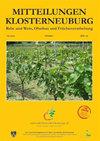Landspitali医院植入物可追溯性的实施
IF 0.5
4区 农林科学
Q4 FOOD SCIENCE & TECHNOLOGY
引用次数: 0
摘要
冰岛有义务与欧洲自由贸易联盟(欧洲自由贸易联盟)合作,通过欧洲联盟的条例。2019年,冰岛议会批准了关于医疗器械的法规(EU) 2017/745(2017)。制定该条例是为了防止医疗程序中使用的设备处理不当,从而提高病人的安全。其中一个要求是植入物的完全可追溯性——在手术中使用的物体,在体内停留或长或短的时间——从制造商到患者使用。为了确保可追溯性,有必要审查和简化整个过程,并尽可能地防止错误。专注于简化流程、消除浪费和第一次就把事情做好的精益方法被冰岛国立大学医院Landspitali用于项目管理。兰德斯皮塔利的工作环境很复杂,错误可能代价高昂。对数据收集和记录保存的需求很高,这有助于确保患者安全。实现工作流变更的过程需要仔细地管理,告知并建立与工作流和技术解决方案相关的人员之间的信任是至关重要的。让员工参与到使用精益原则的过程改进中来,可以增强洞察力,促进对变化的更大接受,从而更容易对影响过渡的问题和外部环境做出反应。本文章由计算机程序翻译,如有差异,请以英文原文为准。
Implementation of Implant Traceability at Landspitali Hospital
Iceland is obliged to adopt the regulations of the European Union in cooperation with the European Free Trade Association (EFTA). In 2019, Regulation (EU) 2017/745 (2017) concerning medical devices was approved by the Icelandic Parliament. The regulation was established to prevent the mishandling of equipment used in medical procedures and thereby enhance patient safety. One requirement is complete traceability of an implant – an object used in a procedure and left in the body for longer or shorter periods – from the manufacturer until it is used in a patient. To ensure traceability, it is necessary to review and simplify the entire process and to prevent errors as much as possible. The Lean methodology, which focuses on simplifying processes, eliminating waste, and getting things right the first time, is used for project management at Landspitali, the National University Hospital of Iceland. Landspitali’s working environment is complex, and mistakes can be costly. There is a high demand for data collection and record keeping, which contribute to ensuring patient safety. The process of implementing changes to workflows needs to be carefully managed, and it is crucial to inform and establish trust with those involved in workflows and technical solutions. Involving staff in process improvement using Lean principles enhances insight and fosters greater acceptance of changes, making it easier to respond to problems and external circumstances affecting the transition.
求助全文
通过发布文献求助,成功后即可免费获取论文全文。
去求助
来源期刊

Mitteilungen Klosterneuburg
FOOD SCIENCE & TECHNOLOGY-HORTICULTURE
CiteScore
1.10
自引率
16.70%
发文量
0
审稿时长
>12 weeks
期刊介绍:
“Mitteilungen Klosterneuburg” publishes original papers, short communications, reviews and surveys on
viticulture, enology, pomology and fruit processing as well as enological chemistry, microbiology, hygiene and
quality management of wine and fruit. Original papers will only be accepted if they have not been published in an
identical or similar form elsewhere (except diploma theses, dissertations and conference contributions). Reviews
are only to be submitted on request.
 求助内容:
求助内容: 应助结果提醒方式:
应助结果提醒方式:


